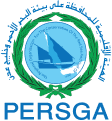Project Scenario
The project aimed at implementing the principles of both environmentally and economically sustainable development and critically reviewing trends and lessons to integrate them in regionally coordinated actions. Information on key regional trends, including sources of UP- POPs, vulnerability and impacts of these sources on the environment, human health, socio- economic development and public participation will be made readily available. Region- specific, but nationally connected indicators and their interpretation in forms that are understandable to decision-makers and the public will be clearly highlighted.
The broad participatory nature of the regional strategy for the introduction of BAT and BEP will generate and substantiate on technical lessons and knowledge for further replication in other coastal zone regions. The practical application of the Regional Strategy (RS) will largely contribute to the regional and international discussion on UP-POPs releases and their impacts on coastal zones and a meaningful response will be obtained to make new management change through adaptation of policies and measures.
Since ecological problems connected to POPs would not disappear shortly but increasingly need to be brought to attention through regular reporting procedures, newsletters and web publishing, thus environmental problems are dealt in with more anticipatory rather than reactive way.
BAT and BEP implementation initiatives open new, innovative economic incentives designed for sustainability, which facilitates the private sector to take over the implementation of the BAT and BEP measures from local and regional government authorities. The private sector is more and more engaged in the adaptation and design of new public and private partnerships and cost-sharing arrangements thus public and private interests are better recognized and addressed. Through increased reinvestment at the local-scale, but regionally coordinated, implementation services will strengthen the base for a higher quality of the environment in the coastal zone, increase competitive advantage of this region in tourism and open the possibility for economic diversification.
PERSGA will have the capacity to integrate POPs into its current programme portfolio. Thus coastal zone and its ecosystem, socio-economic development and environmental status will be overseen in a broader way. PERSGA, as a regional entity has the capacity to maximise the effectiveness of the implementation of Annex C related obligations under the Stockholm Convention. PERSGA can effectively direct the countries’ attention to scientifically approve priority areas of action within the region. While UP-POPs releases continue to pose threats on the environment and public health, the project will build a widespread awareness of the nature of the POPs problem and provides for the possibilities of solutions as well as constraints on mitigation and adaptation of these through the RS.







